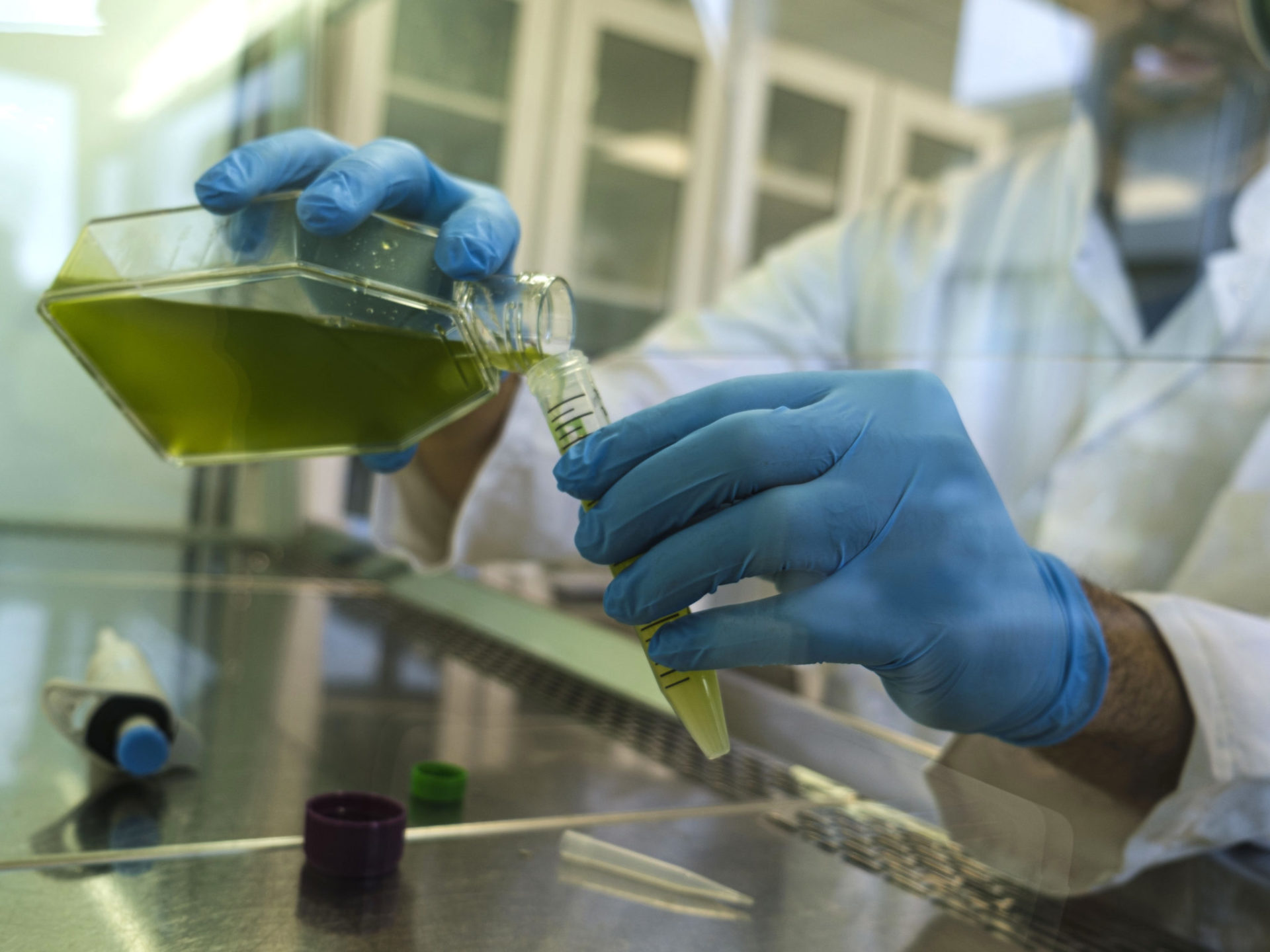Turning CO2 into feed, food, and skin care ingredients
The start-up-company, Algiecel, has developed a new technology that convert CO2-emissions from industries into green algae-based products – a valuable and climate friendly ingredient in aquaculture feed, petfood, and cosmetics.
While greenhouse gas emissions are causing serious climate changes, industries are searching for solutions to bring down their negative carbon footprints. One solution that holds great potential is carbon capture and carbon reuse.
Until recently, small to mid-sized companies, both lacking the space and financial resources for expansive carbon capture systems, had no viable options for capturing and reusing their carbon emissions.
A plug & play photobioreactor to capture CO2
The Danish firm Algiecel has developed a new technology, a plug & play photobioreactor, that captures CO2 emissions continuously and transforms it into microalgae biomass using LED light via photosynthesis.
The technology enables companies like biogas and fermentation plants to utilise CO2 from their industrial processes on sight and turn it into microalgae oil and microalgae biomass. These products can be applied as a valuable ingredient in aquaculture feed or petfood, in human dietary supplements, and in cosmetics like skin care products.
The photobioreactor fits into a standard 40́ shipping container and the only thing it requires, is a flat surface, a supply of CO2, and the necessary power capacity. The system is modular, allowing for stacking of multiple containers to maximize space efficiency. The only by-products left are oxygen and residual heat both of which can be reused, for example in heating up the biomass at a biogas plant.
The photobioreactor fits into a standard 40 ́ shipping container and the only thing it requires, is a flat surface, a supply of CO2, and the necessary power capacity.
More sustainable food production
The global markets for alternative protein in food, food supplements, and animal feed is expected to reach DKK 4,000 billion by 2030.
Scaling the technology developed by Algiecel holds two great potentials: an innovative, climate friendly solution for the food and feed industry as well as a reduction of industrial CO2 emissions.


